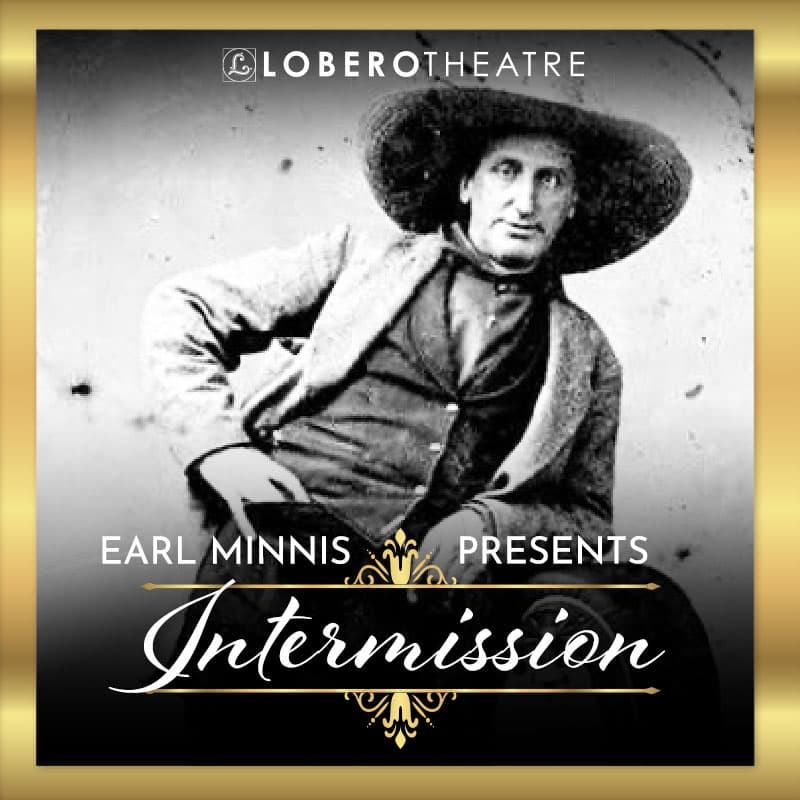In December 1869, José Lobero (born “Giuseppe” in Genoa, Italy) announced his plans to construct a grand opera house in Santa Barbara, even though the town had fewer than 3,000 residents.
Señor Lobero’s dream was not unique. With the prosperity that followed the Civil War, most small towns and cities in America also wanted an opera house.

On Washington’s Birthday in 1873, the Lobero Opera House finally opened, on the site of an old wooden schoolhouse at Canon Perdido and Anacapa streets. It featured a suspended horseshoe balcony and could seat 1,300. At the time of its opening, the Lobero was the largest adobe building in California and soon established itself as the cultural heart of Santa Barbara.
During that era, one of the most colorful theater impresarios and traveling entertainers was an Irishman named Jack Langrishe, popularly known as the “Comedian of the Frontier.” Jack was born in Dublin, Ireland in 1825, and emigrated to Boston when he was 20 years old. Within a few years, he was working in Boston taverns and theaters as an actor, comedian, and magician. In 1860, Langrishe and his actress wife Jennette saw an opportunity for touring entertainers in the western frontier, and his “Langrishe and Company” found a lucrative niche performing in mining towns in Colorado and Montana.
In 1876, Langrishe and Company arrived in Deadwood, South Dakota. Two years earlier, Colonel George Armstrong Custer had led an expedition into the nearby Black Hills and had found gold, setting off a wild gold rush which brought thousands to claim stakes on the Sioux-owned land. In 1876, Deadwood had grown to over 25,000 residents and was a lawless, violent town, but it was also a place that was hungry for entertainment.
Jack and Jenette Langrishe wasted no time in the thriving boom town, and they opened Deadwood’s first theater in July 1876. Just one week later, Wild Bill Hickok was murdered by Jack McCall in a neighboring saloon. An impromptu court was immediately called to order and the Langrishe Theater was requisitioned for McCall’s murder trial.
For three years, the Langrishe Theater was the center of Deadwood night life, with nightly vaudeville and minstrel performances playing to a packed house. Entertainers were sometimes paid in gold dust. Calamity Jane was a theater regular.
David Milch, the producer of the hit HBO series Deadwood, described Jack Langrishe as “a brilliant producer who made a fortune and, of course, lost every cent in hare-brained investments. He insisted every season on doing two Shakespeare plays, and invariably somebody tried to murder him during the performance because, strangely enough, Shakespeare wasn’t big in the mining camps.”
In September 1879, a devastating fire destroyed much of Deadwood, including the Langrishe Theater. Rather than rebuild, the Langrishes decided to take to the road. During an 1884 tour of the west coast, they arrived at the Lobero Opera House for a one-week run. Music for the performances was provided by the Santa Barbara Orchestra.
The Independent wrote, “The Langrishe troupe arrives today on the steamer, and will open tonight in Lobero’s Theatre. They deserve a full house.”
California audiences, including Santa Barbareños, loved Langrishe, and newspaper reviews were very positive.
The line announced on the bills, “A Whole Laugh Every Half Minute”, proved a literal truth, for it was one solid, undying, long-drawn burst of mirth, sometimes swelling into a roar, but never ending until the curtain fell, and the audience went home with aching sides.”
“Those who have not seen this company have missed a genuine treat, since they do not offer the trash generally considered good enough for us, but present good plays in an artistic and entertaining manner.”
Jack Langrishe retired from the stage in 1885. He and Jenette moved to Idaho, where he published a small newspaper, served as a state senator, and occasionally wrote plays.




